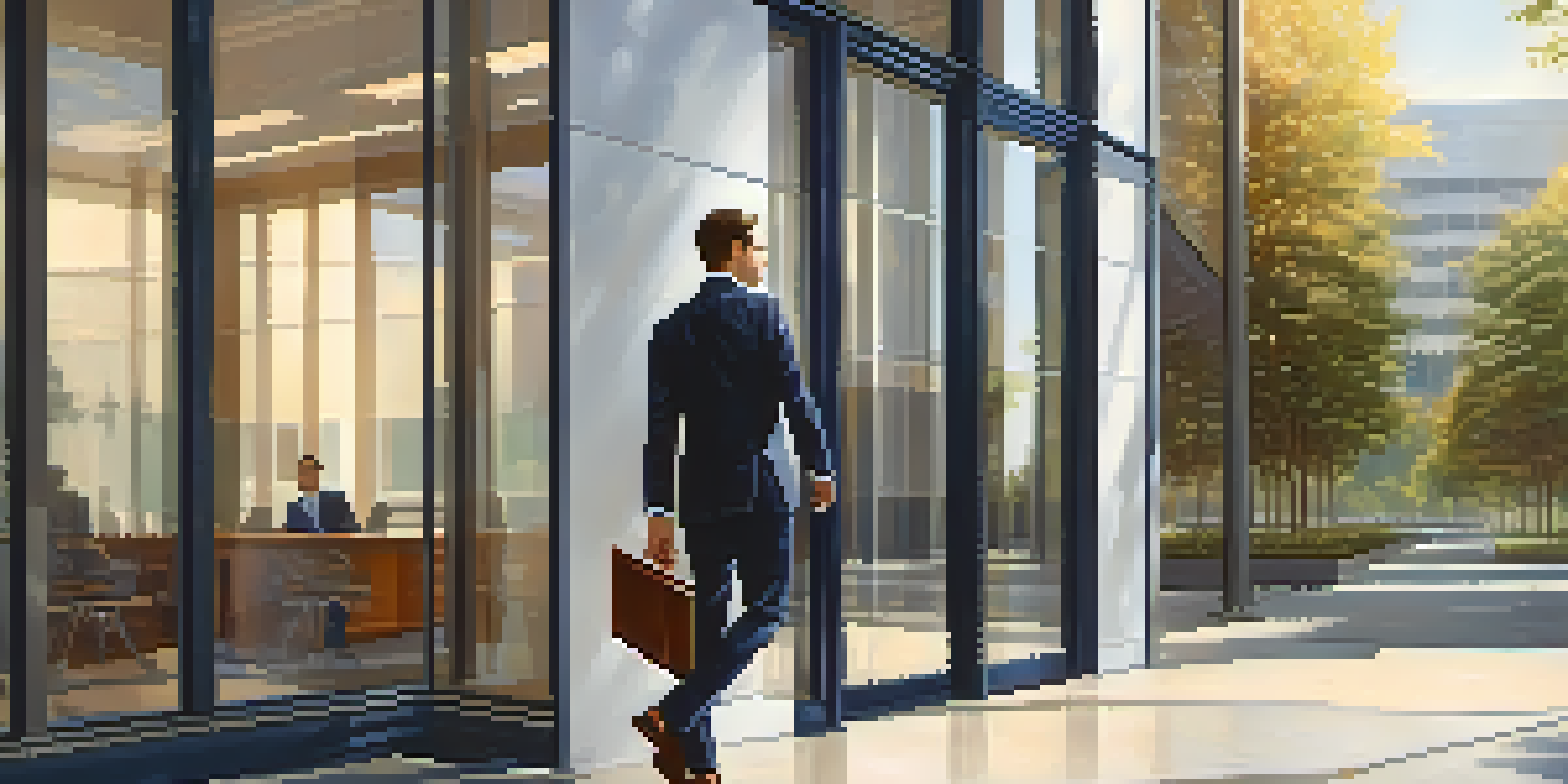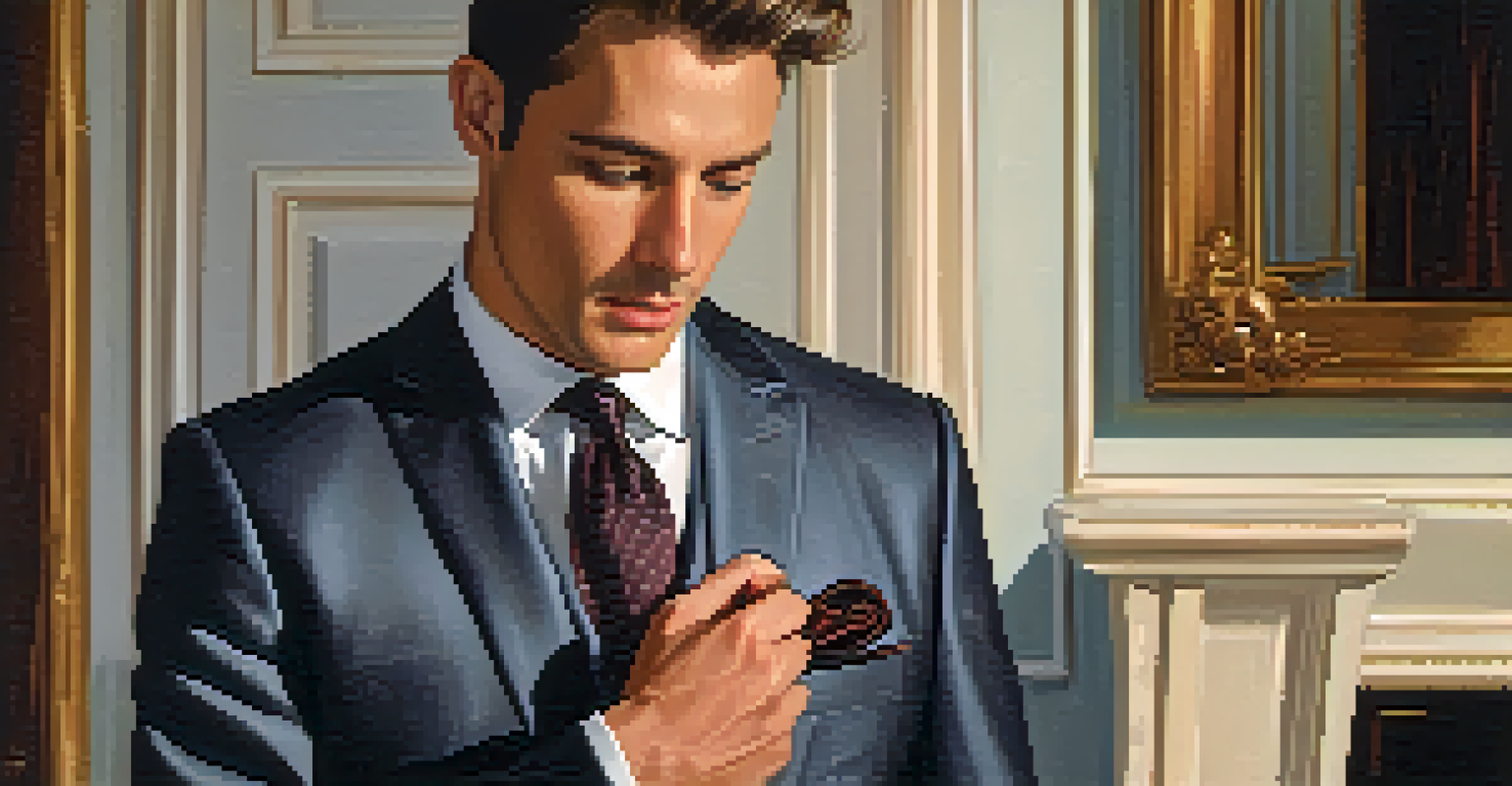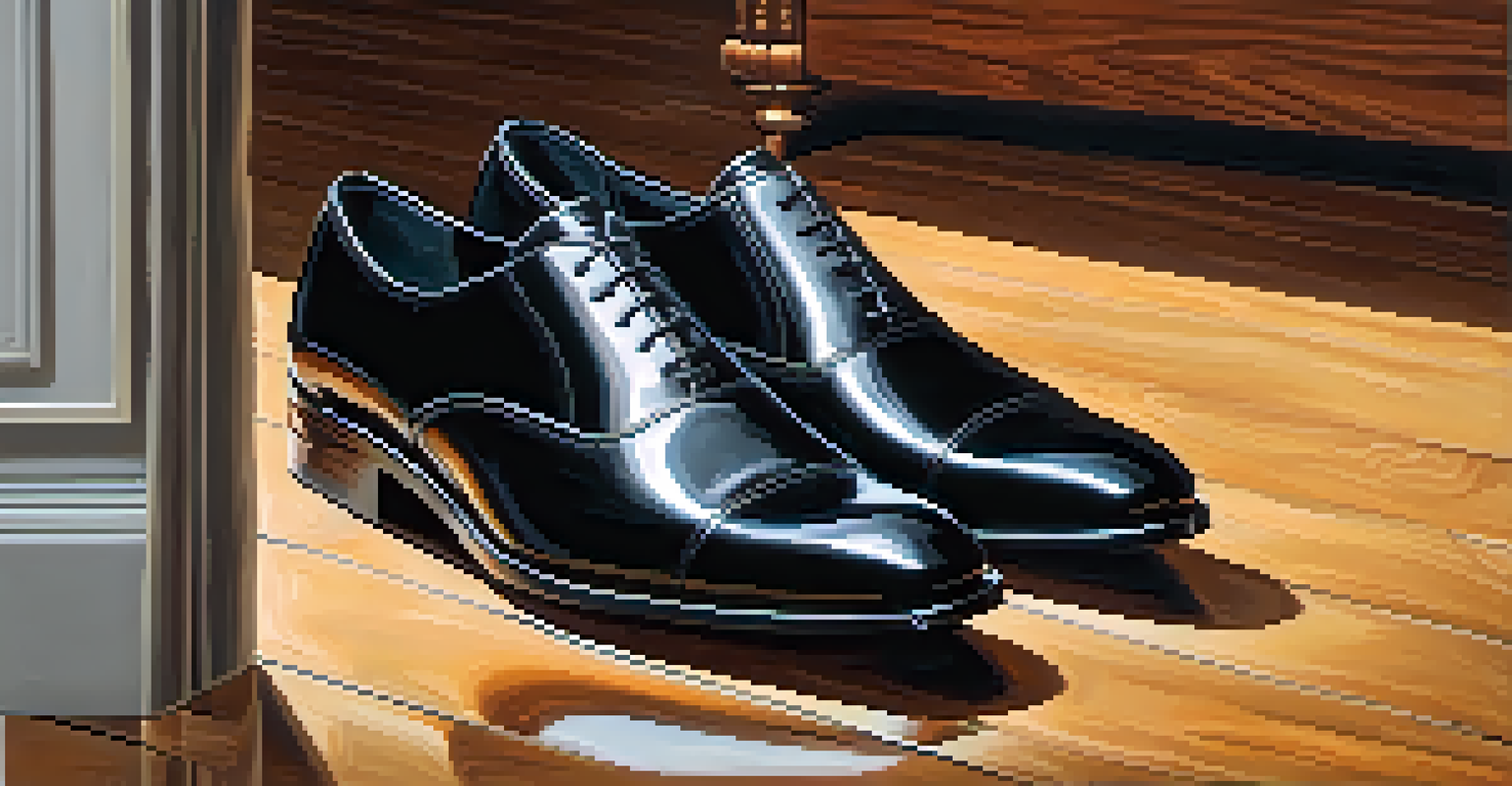How to Dress for Success in Job Interviews

Understanding the Importance of First Impressions
First impressions can be pivotal, especially during job interviews. They set the tone for how potential employers perceive you right from the start. Dressing appropriately can demonstrate your professionalism, attention to detail, and respect for the opportunity.
You never get a second chance to make a first impression.
Imagine walking into an interview wearing an outfit that screams confidence versus one that looks thrown together. The former instantly conveys that you take the process seriously, while the latter may raise doubts about your commitment. This initial judgment often sticks, affecting how you’re perceived throughout the interview.
Therefore, investing time in your outfit can be as important as preparing answers to common interview questions. Remember, you’re not just showcasing your skills; you’re also presenting yourself as a candidate who understands the value of professionalism.
Researching Company Culture and Dress Code
Before selecting your interview outfit, it’s essential to research the company’s culture and dress code. Some organizations embrace a casual, laid-back vibe, while others may require formal business attire. Understanding this landscape can help you tailor your wardrobe choices accordingly.

For instance, if you're interviewing at a tech startup known for its relaxed environment, showing up in a suit may come off as out of touch. Conversely, if you’re applying for a role at a law firm, a polished suit or professional dress is likely expected. This alignment with their culture not only makes you feel comfortable but also shows that you’re a good fit.
First Impressions Matter
Your appearance during an interview sets the tone for how employers perceive your professionalism and commitment.
To get a feel for the company’s style, check out their social media profiles, employee reviews, or even ask current employees if you know any. This research ensures you strike the right balance between looking professional and fitting in with the company’s identity.
Choosing the Right Outfit for Your Interview
When it comes to picking out your interview outfit, aim for a balance of professionalism and personal style. Start with classic staples—think tailored blazers, crisp shirts, or a smart dress. These items convey seriousness while allowing you to inject a bit of your personality through colors or accessories.
Dress for the job you want, not the job you have.
For instance, if you prefer a more relaxed approach, a well-fitted blazer paired with a neat pair of dark jeans can work wonders, especially in casual environments. On the flip side, a tailored suit can elevate your look in more formal settings. The key is to feel like yourself while still adhering to the expected dress code.
Don't forget the importance of comfort—if you're constantly adjusting your outfit or feeling restricted, it will distract you during the interview. Ensure that whatever you choose fits well and allows you to move confidently.
Paying Attention to Grooming and Personal Hygiene
Dressing well goes hand in hand with good grooming and personal hygiene. A polished appearance can boost your confidence and help create a positive impression. Simple habits, like showering, grooming your hair, and ensuring your nails are clean, can enhance your overall look immensely.
Think of grooming as the finishing touch to your outfit. It’s like adding the perfect frame to a beautiful painting—it elevates the entire presentation. For example, a neat hairstyle can complement your professional attire, indicating that you care about how you present yourself.
Research Company Culture
Understanding the company's dress code and culture helps you choose an outfit that aligns with their expectations.
Moreover, be mindful of your fragrance—too much can be overwhelming, while a subtle scent can be refreshing. Ultimately, the goal is to create an image that showcases your professionalism, making you memorable for all the right reasons.
Selecting Appropriate Footwear for Interviews
Footwear is often an overlooked aspect of interview attire, but it can significantly impact your overall look. Choose shoes that are clean, polished, and appropriate for the position and company culture. For example, classic dress shoes or loafers work well for more formal environments, while stylish flats or clean sneakers can suit a casual setting.
Comfort is also a vital factor—make sure you can walk confidently in your chosen shoes. The last thing you want is to be distracted by pinching shoes or sore feet while trying to impress your potential employer. Practicing walking in your outfit, including your footwear, can help ensure you feel at ease on the big day.
Remember that your shoes can say a lot about your attention to detail. A well-chosen pair can complement your outfit and enhance your professional image, reinforcing the idea that you take the interview seriously.
Accessorizing Thoughtfully for a Professional Look
Accessories can be a fun way to express your personal style, but they should be chosen with care. Opt for subtle, professional pieces that won't distract from your overall appearance. A classic watch, simple earrings, or a neat tie can add a touch of sophistication without overwhelming your look.
Think about your accessories as the seasoning in a dish—just the right amount can elevate the flavor, but too much can spoil the meal. For instance, if you're wearing a statement necklace, keep the rest of your outfit simple to avoid clashing. This balance will help maintain a polished and professional appearance.
Confidence and Body Language
Your demeanor, including confidence and positive body language, is crucial in making a lasting impression during an interview.
Also, consider functional accessories, such as a professional bag or portfolio to carry your resume and notes. These items not only add to your look but also demonstrate your preparedness for the interview.
Final Touches: Confidence and Positive Body Language
While your outfit plays a crucial role in how you're perceived during an interview, your confidence and body language can make just as significant an impact. Stand tall, make eye contact, and smile to convey your enthusiasm and positivity. These nonverbal cues can often speak louder than words.
Imagine walking into the interview room, dressed impeccably, and exuding confidence. Your attire may capture attention, but your demeanor will keep it. Practicing good posture and open body language can help you appear more approachable and engaged, making a lasting impression on your interviewer.

Lastly, remember that confidence often comes from preparation. The more you prepare for the interview—both in terms of your outfit and your answers—the more comfortable you’ll feel, allowing your true personality to shine through.